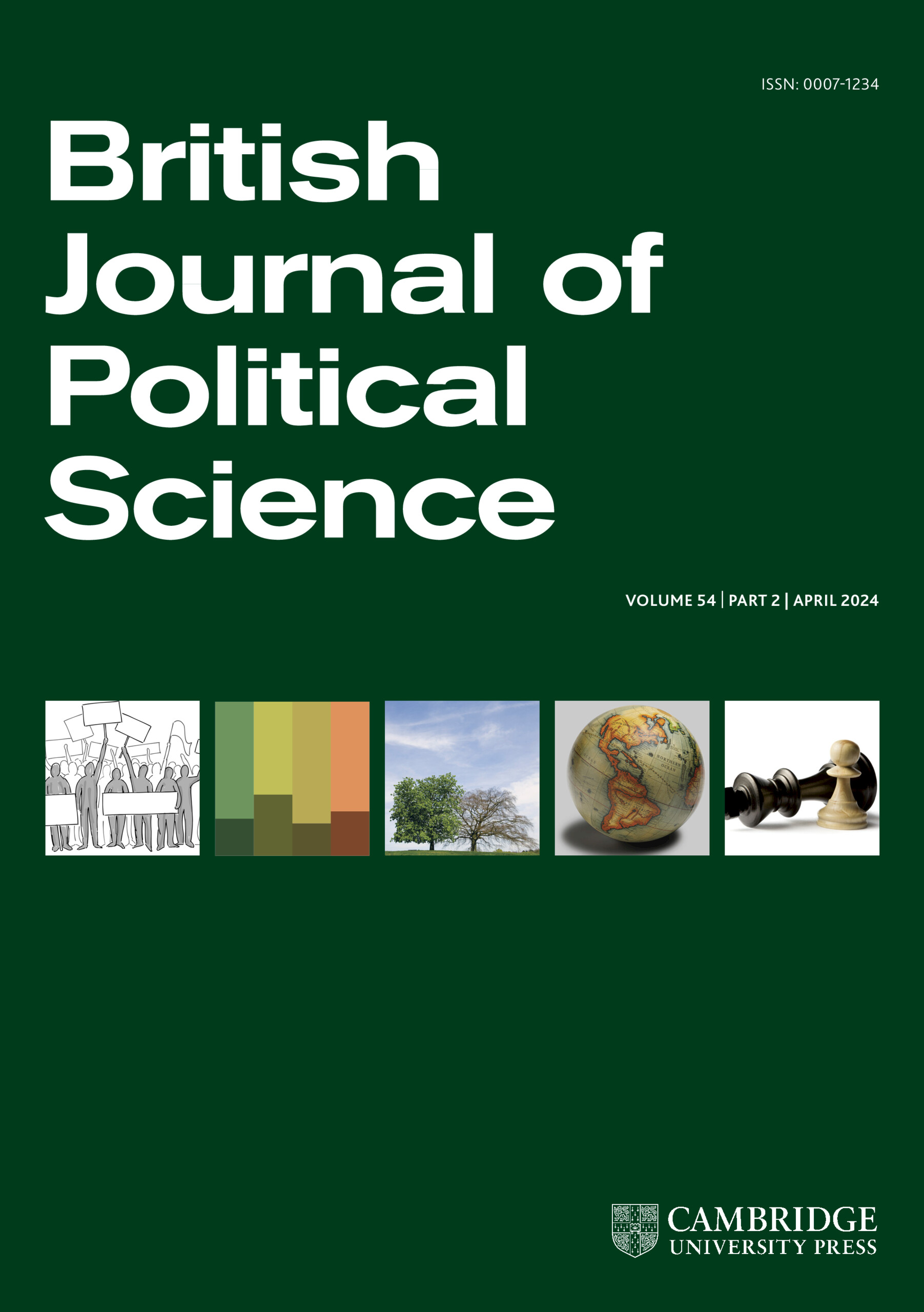政府医疗支出的风险和偏好:来自英国COVID-19危机的证据
IF 4.6
1区 社会学
Q1 POLITICAL SCIENCE
引用次数: 2
摘要
摘要新冠肺炎大流行的爆发对感染一种对健康构成重大威胁的疾病的风险构成了巨大冲击。我们调查了在危机期间,客观健康风险大幅增加的个人——通过基于职业的接近他人的措施来操作——是否变得更支持政府增加医疗支出。使用追踪疫情爆发前(2018年5月至2019年12月)和爆发后(2020年6月)英国个人的面板数据,我们实施了一种固定效果设计,该设计在关键治疗变量提供给我们之前就已经预先注册。虽然高风险职业的个人更担心自己的感染风险,新冠肺炎死亡率更高,没有证据表明新冠肺炎期间健康风险的增加改变了对政府医疗支出的态度,也改变了对再分配的更广泛态度。我们的发现与最近的研究一致,表明疫情对政治态度的影响有限。本文章由计算机程序翻译,如有差异,请以英文原文为准。
Risk and Preferences for Government Healthcare Spending: Evidence from the UK COVID-19 Crisis
Abstract The onset of the COVID-19 pandemic constituted a large shock to the risk of acquiring a disease that represents a meaningful threat to health. We investigate whether individuals subject to larger increases in objective health risk – operationalized by occupation-based measures of proximity to other people – became more supportive of increased government healthcare spending during the crisis. Using panel data that track UK individuals before (May 2018–December 2019) and after (June 2020) the outbreak of the pandemic, we implement a fixed-effect design that was pre-registered before the key treatment variable was available to us. While individuals in high-risk occupations were more worried about their personal risk of infection and had higher COVID-19 death rates, there is no evidence that increased health risks during COVID-19 shifted either attitudes on government spending on healthcare or broader attitudes relating to redistribution. Our findings are consistent with recent research demonstrating the limited effects of the pandemic on political attitudes.
求助全文
通过发布文献求助,成功后即可免费获取论文全文。
去求助
来源期刊

British Journal of Political Science
POLITICAL SCIENCE-
CiteScore
8.70
自引率
4.00%
发文量
64
期刊介绍:
The British Journal of Political Science is a broadly based journal aiming to cover developments across a wide range of countries and specialisms. Contributions are drawn from all fields of political science (including political theory, political behaviour, public policy and international relations), and articles from scholars in related disciplines (sociology, social psychology, economics and philosophy) appear frequently. With a reputation established over nearly 40 years of publication, the British Journal of Political Science is widely recognised as one of the premier journals in its field.
 求助内容:
求助内容: 应助结果提醒方式:
应助结果提醒方式:


